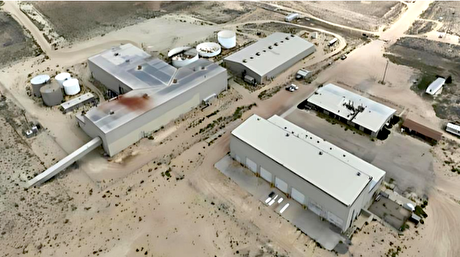
Official: Eurasian Economic Commission Ready to Expand Trade Ties with Iran

“Such cooperation will have good prospect for both the Eurasian countries and Iran,” Nikishina said.
She noted that Iran is an important market in the region, and said, “Developing relations with Iran is of significance for us.”
Nikishina said that signing agreement on creating a trade zone between Iran and the Eurasian commission will pave the way for promoting cooperation, adding, “We believe that commercial exchanges with Iran should be developed and all sides and employers should have the opportunity to take advantage of it.
She also expressed the hope for taking advantage of the Instrument in Support of Trade Exchanges (INSTEX) which has been created by the three European states of Germany, France and the UK to bypass sanctions.
In relevant remarks earlier, Iranian Ambassador to Moscow Mehdi Sanayee referred to the ratification of the agreement on creating a free trade zone between Iran and Eurasian Economic Union in Iran parliament, saying over 500 export goods to Eurasia are enjoying preferential or zero tariff.
Iran’s free trade with Eurasian Economic Union is an important step in Iran's foreign trade and developing exchanges with northern neighbors, Sanayee wrote on his Twitter account.
Signing the preferential tariff agreement and the establishment of a free trade zone between Iran and the Eurasian Union has also led to the development of economic relations between Iran and the Eurasian Union and could help Iran's regional hub and strengthen the north-south corridor.
The Eurasian Economic Union is an economic union of states located in central and northern Asia and Eastern Europe. The Treaty on the Eurasian Economic Union was signed on 29 May 2014 by the leaders of Belarus, Kazakhstan and Russia, and came into force on January 1, 2015.



BHP, Vale accused of ‘cheating’ UK law firm out of $1.7 billion in fees

Trump tariff surprise triggers implosion of massive copper trade

Eldorado to kick off $1B Skouries mine production in early 2026

Newmont nets $100M payment related Akyem mine sale

Southern Copper eyes $10.2B Mexico investment pending talks

Copper price collapses by 20% as US excludes refined metal from tariffs

St Augustine PFS confirms ‘world-class’ potential of Kingking project with $4.2B value

Maxus expands land holdings at Quarry antimony project in British Columbia

First Quantum scores $1B streaming deal with Royal Gold

Caterpillar sees US tariff hit of up to $1.5 billion this year

Uranium Energy’s Sweetwater plant on fast track for in-situ mining approval

Tianqi Lithium Australia JV says it is prioritizing long-term viability of refinery

First Quantum scores $1B streaming deal with Royal Gold

One dead, five missing after collapse at Chile copper mine

Eldorado to kick off $1B Skouries mine production in early 2026

Newmont nets $100M payment related Akyem mine sale

Idaho Strategic rises on gold property acquisition from Hecla

Goldman told clients to go long copper a day before price plunge

Gold price rebounds nearly 2% on US payrolls data

Caterpillar sees US tariff hit of up to $1.5 billion this year

Uranium Energy’s Sweetwater plant on fast track for in-situ mining approval

Tianqi Lithium Australia JV says it is prioritizing long-term viability of refinery

First Quantum scores $1B streaming deal with Royal Gold

One dead, five missing after collapse at Chile copper mine

Eldorado to kick off $1B Skouries mine production in early 2026

Newmont nets $100M payment related Akyem mine sale

Idaho Strategic rises on gold property acquisition from Hecla

Goldman told clients to go long copper a day before price plunge














